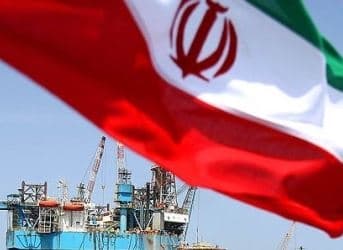First begun in 1979 following the seizure of the U.S. embassy in Tehran, Iran is now subject to three differing sets of sanctions – the U.S., the European Union and the United Nations. Implemented over fears of covert nuclear weapons development hidden in Iran’s civilian nuclear energy program, the tightening sanctions have forced both Iran and its energy importers to get creative about financing.
Iran currently provides 44 percent of Turkey’s oil imports and Turkey is Iran’s biggest natural gas customer. The sanctions legislation has hit hard Turkey’s abilities to pay for its Iranian natural gas imports, so Tehran and Ankara came up with a circuitous plan to allow Turkey to pay in gold bullion.
Because U.S. sanctions prevent Turkey from paying in dollars or Euros, Turkey has been paying Iran for its imports in Turkish Liras. Iranians then use those liras, held in Halkbank accounts, to buy gold in Turkey, and couriers carry the bullion to Dubai, where it can be sold for foreign currency or shipped to Iran. According to Turkish Statistics Institute (TÜ?K) data, in February Turkey exported almost $120 million in gold to Iran and in March Turkish gold exports to Iran soared to almost $381 million.
Or rather, did, because on 1 July tough new U.S. sanctions targeting gold transactions came into effect. Two months ago Treasury Undersecretary for Terrorism and Financial Intelligence David Cohen told a Congressional hearing “We have been clear that that July 1st date is a real date and that after July 1st, any sale of gold to Iran is something that we will pursue vigorously,” but how this will impact U.S.-Turkish relations remains to be seen, given Turkey’s value to the Obama administration as a partner on a host of issues.
Related Article: Why Big Oil is Shifting Away from the Gulf of Mexico
Another strategic U.S. ally has also developed an interesting means to sidestep U.S. sanctions. A barter deal between Iran and Pakistan, with Islamabad supplying 100,000 tons of wheat against its outstanding bill for electricity imports was first proposed in mid-February but was delayed by preparations for Pakistan’s 11 May election. Commerce Ministry spokesman Mohammad Ashraf said following the election, “The wheat is being given to Iran against the outstanding payment of $53 million for electricity supplied to Pakistani border areas from the Iranian grid. The interim cabinet has approved the decision and exports will be initiated as early as possible.” The grain is to come from government stocks. In earlier negotiations, in August 2012 Pakistan agreed a price of $300 per ton.
Pakistan is battling chronic electricity shortages, which is inflaming public anger and stifling industrial output, as power outages can last eight to 10 hours a day in cities, with much more frequent cuts in rural areas. “Pakistan is an energy-starved country facing severe power cuts that are badly hampering industrial output,” Ashraf said. “Connecting far-flung areas to Pakistan’s grid is a costly affair.” Electricity from Iran costs Pakistan around $3 million a month and is supplied to towns near the Iranian border, including the Arabian Sea port of Gwadar. Pakistan now owes Iran $53 million for the electricity imports but its cash-strapped state and private power companies have no means to pay, as the companies’ infrastructures are outdated and the utilities are inefficient.
Pakistan’s electricity is generated, transmitted, distributed, and sold by two vertically integrated public sector utilities, Water and Power Development Authority, responsible for all of Pakistan except Karachi, and the Karachi Electric Supply Corp, along with roughly 20 independent power producers. None have developed substantive solutions to the country’s ongoing power crisis.
Western sanctions do not as yet target food shipments to Iran, but the fiscal measures have frozen Iranian companies out of much of the global banking system, hindering payments for imports, on which Iran relies for much of its food.
Iran has an additional reason to be interested in Pakistani wheat - Uganda-99 wheat rust, a virulent stem rust race first detected in Uganda in 1999. Ug-99 can kill wheat plants and small grain cereals, but more usually reduces foliage, root growth, and grain yields. Windborne, in 2006 Ug99 had spread from Uganda northwards into Sudan and blew across the Red Sea into Yemen and by 2007 it had reached Iran following regional winds.
Related Article: Australia – Next Petro Superstate?
According to the International Maize and Wheat Improvement Center, “In Iran, very early reports of yellow rust infections occurred in January 2013 in the south-west of Iran (South Khuzestan). Yellow rust developed rapidly and spread on Cultivars Chamran and Veery/Nacazori, causing epidemics in farmers fields. Over 100,000 ha are reported to have been sprayed with fungicide in the southwest and west of Iran. Incidence of Yellow rust on susceptible wheat cultivars in other parts of Iran has also been reported from west (Ilam and Kermanshah), Caspian Region (Gorgan), south-east (Kerman and Jiroft), south of Fars province (Mamasani) and north west (Ardabil.)”
So, will Washington, which needs Turkish and Pakistani assistance in coping with crises from Syria to Afghanistan, lower the boom on their creative approaches to resolve their energy shortages? Will sanctions be relaxed, or tightened to include food?
In air-conditioned Washington during Ramadan, anything is possible.
By. John C.K. Daly of Oilprice.com



















The audacity and hypocrisy of Americans who complain about Iran's nuclear program is unbelievable. The U.S. has thousands of nukes and is the only country that has actually used nuclear bombs. Yet, it is supposedly paranoid that Iran may someday decide to build nukes which are totally useless in today's world.
Leave Iran alone, stop provoking millions of Muslims because of Israel, fix your policies that anger people, build friendships instead of enemies.
Get hateful Senators and Congressmen out now.